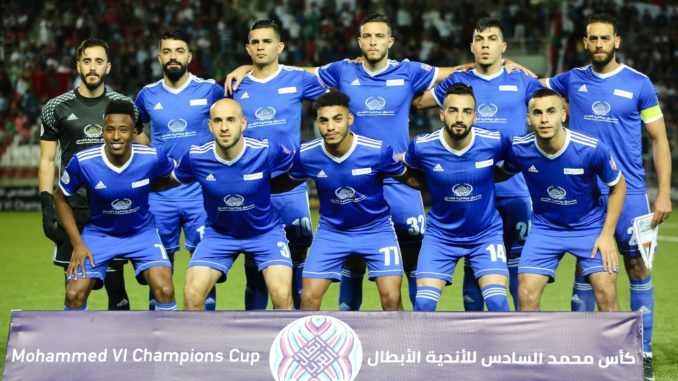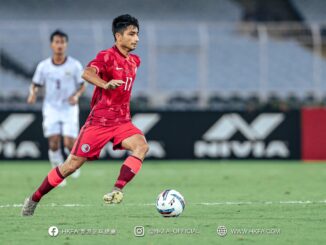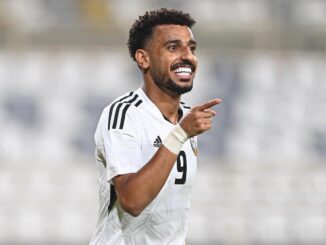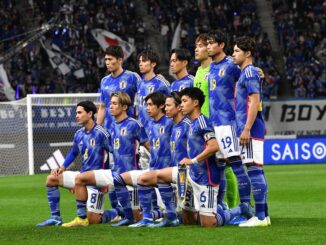
Jerusalem is a city of contradictions and conflicts.
According to some, Jerusalem is at the heart of the significant modern conflicts. It is holy to Islam, Judaism, and Christianity, and it is claimed by both Israel and Palestine as a capital city.
This religious nationalism associated with the city is one of the reasons Jerusalem is at the core of the Israeli Palestinian conflict.
At the same time, Jerusalem is an exceptional city.
With almost one million inhabitants and nearly another million that come and go during the day, Jerusalem is a prominent, central and diverse spot in the land that is situated between the Jordan River and the Mediterranean. Muslims, Jews, Christians, Armenians, all living together in a connected but disputed reality, both politically and religiously.
It has been a place of pilgrimage and worship since the biblical era, meaning history is literally everywhere you look. It has essential religious sites around the Temple Mount compound, including the Western Wall, the Church of the Holy Sepulcher and the Dome of the Rock.
Not too far away from there, between the Old City walls, sits one of Jerusalem’s most prestigious sporting institutes, Al-Qal’ah (‘The Castle’) – home to one of, if not the most westerly clubs in Asian football – Palestinian champions Hilal Al-Quds.
Society, Culture, Art and…Football
Hilal Al-Quds was founded in 1972, as one of the first organised multi-sport clubs in Palestine.
Since its foundation, the club has offered various sporting, as well as social, cultural and artistic activities for Jerusalem youth, boys and girls alike. Until today, the club’s treaty highlights its primary target – to develop the city’s young population while promoting their social, Jerusalemite & Palestinian identities.
Hilal’s activities include table-tennis, fencing, artistic swimming rhythmic gymnastics, karate, basketball, athletics and, from 1976, football.
The first team plays its home games at Faisal Husseini Stadium in Al-Ram, the national stadium of Palestinians in the West Bank, on ‘Route 60’ that connects Jerusalem with Ramallah.
In total, since the beginning of the professional era, A-Za’im (The Boss) or Ossoud al-Asimah (The Capital’s Lions) have won four West Bank Premier League championship titles, three West Bank Cup titles, four West Bank Super Cups and two Yasser Arafat League Cup.

They are also a member of the ‘Fantastic Four’ of Palestinian football – together with Shabab Al-Khaleel, Shabab Balata and Taraji Wad al-Nes – the only four clubs to never have been relegated from the top division.
Hilal Al-Quds is a significant power in Palestinian football, but it wasn’t that long ago that things seemed to be going nowhere.
Let the Doctor fix it
At the beginning of 2015/2016 season Hilal Al-Quds was a complete wreck.
Many stars had left, losses came in quick succession, and after the West Bank Premier League’s first-round, the club was in the eleventh place, sitting deep in the relegation zone, with very little hope for the second half of the season.
The turning point came when the club’s president, Dr. Bassem Abu Aseb, one of the most noteworthy figures in East Jerusalem, and the owner of the biggest joint public clinic in this part of the city, decided to act and shake up the system.
At first, he threatened to leave his post at the club. This was considered a potential death blow for Hilal. After a couple of stressful days at the Qal’ ah, Dr. Abu Aseb was convinced to stay when a massive protest from the fans took place outside of his clinic and the club’s facilities. In January 2016 he brought in Ammar Salman as a manager, and the shift began.
Salman saved the club from relegation with a run of nine games without a loss, eight of which were wins. Together with this, he led the team to the West Bank Cup final, which they lost 3-0 to Ahli Al-Khaleel.
In a way, Hilal Al-Quds hasn’t looked back since.
This league is ours
In the summer prior to the 2016/17 season, the wise investments of Dr. Abu Aseb in the club continued. Coach Khader Obeid was signed from reigning champions back then, Shabab Al-Khaleel, and brought with him some of the biggest names in Palestinian football.

Wide forward Tamer Seyam joined from Shabab, defensive midfielder Mohammad Darweesh joined from Dhaharia and Mohamad Yamin from Thagafi Tulkarem.
Together with homegrown talent Oday Dabbagh, then a Palestine U23 national team star, Obeid’s band was a clear favorite to dominate the West Bank Premier League.
Hilal was cruising, but yet again, but again problems popped up.
At the beginning of October 2016, a team photo before a match against Shabab Al-Khaleel at Faisal Husseini, a staff member brought a sign honouring Mesbah Abu Sbeih, an Al-Ram-born Palestinian who assassinated an elderly Israeli woman and an Israeli policeman in the ancient city just three days prior, before he himself was shot and killed by security forces.
The story made worldwide headlines putting the club in the centre of a volatile situation.
On the one hand, at the local level, the club showed its support to the local village son who died for the Palestinian struggle; but on the other hand – most notably the international community’s point of view – Hilal Al-Quds was perceived to be supporting terrorism.
If things weren’t complicated enough, coach Khader Obeid, was at the centre of that storm. In addition to his work as a football coach, Obeid is also a school principal in Issawiyah, a village in East Jerusalem, that is under the supervisory and funding of the Israeli Education Ministry.
When the news broke in the Israeli media, the optics weren’t good for Obeid, as many questioned how a school principal, who’s being paid by the Israeli Ministry of Education and the Jerusalem Municipality, could support such acts by an individual as Abu Sbeih?
The issue was a severe threat to Hilal’s season at the time. Obeid decided to limit his involvement with the team, as he thought it would be a threat to his other job as a school principal.
The club was favourite to win the title, and they needed Obeid with them. During the season, Obeid promoted Amjad Taha, the youth coach and assistant manager, to become a kind of co-coach with him.
What seemed like a downgrade at first turned out to be a huge advantage. Taha was a devoted hard worker with an original football mind, which helped the club to navigate a difficult season and win their first championship title since 2011/12.
The preparation for the 2017/18 season saw Hilal make more crucial moves in the transfer market.
Goalkeeper Rami Hamadeh, who was a rising star in the national team, joined in the summer. At the same time, the club also began the construction of another gym facility in Al-Ram, near their home stadium, Faisal Husseini.
As Obeid and Taha cooperated well, Hilal was easily dominating the West Bank Premier League, winning the club’s second championship, finishing seven points clear from second place, Thagafi Tulkarem.
Throughout the 2017/18 season and in the summer break, Taha’s advantages as a care-taker quickly became apparent.
As the guy who trained and nurtured the club’s youth, he knew exactly which youngsters could contribute to a winning team.
Besides Dabbagh, who was already making an impact in the first team, Taha has started to bring in other members of the talented class of ’98. Players like Musa Farawi, Ihab Khamis, Ali Niamh, Hani Abdallah, Mohamed Mayaleh and Sari Jadallah, started to get their chances.
The seeds for Hilal’s future were already planted
First, Asia. Then the World
Hilal went on to win another championship title the following season, but in the AFC Cup, things were still a struggle.

A qualifying playoff with Omani side Al-Suwaiq in 2018 saw the Jerusalemites lose away and draw at home, missing out on the chance to qualify for the group stage for the first time.
That would all change this year.
With a few significant signings of Palestinian players with Israeli citizenships, such as Mahmoud Awesat, and the experience the young players were gaining, Hilal was more than ready to make its impact on the Asian stage.
Home and away wins against Omani side Al-Nasr was enough to write another famous chapter in the club’s history – their first ever qualification to the AFC Cup group stage.
Drawn in Group A alongside Al-Jaish (Syria), Nejmeh (Lebanon) and Al-Wehdat (Jordan), it looked to be mission impossible for Hilal, but that was far from the case.
Although they were the most inexperienced of the four teams, Hilal produced great performances against their Syrian and Lebanese opponents, with two draws against Al Jaish and two wins against Nejmeh.
Besides, the club took a proactive stand in a meaningful discussion – the question of normalisation.
Nejmeh refused to travel to the West Bank as they considered it as an act of normalisation with the Israeli security control of its borders.
Hilal, instead of accepting the call to play their home fixture at a neutral venue, insisted the game be played at Faisal Husseini. It was a necessary move. After years of refusals to play in the West Bank by Arab teams, it was the first time a Palestinian entity stood up for their right to host games on their home soil, claiming the problem as a ‘non-issue’.
Moreover, Badder Mekky, Hilal’s managing board member, told various media outlets then that, “not playing in the West Bank doesn’t mean to stand against normalisation with Israel. It means hurting the development of Palestinian sports, Palestinian independence and the joy of Palestinian people.”
The matches against Nejmeh were, however, eventually moved to Saudi Arabia, yet Hilal had the last laugh, winning both games 2-1, with Dabbagh the standout in both games, scoring three of the four goals.
Yet, this unique and unprecedented stance the club took in the normalisation saga did pave the way for a true slice of Palestinian and Arab history.
Al-Wehdat, probably the most prominent Palestinian entity in Jordan, saw the club’s stance and listened. They understood Mekky’s call for support in what Hilal was doing and came to play their fixture as planned in the West Bank.
In the first ever official visit of the Jordanians to the West Bank, Faisal Husseini Stadium was full, festive and exciting.
Unfortunately, Hilal suffered a 6-2 defeat, with a brilliant display by Baha Faisal, who netted four goals. Yet, the result mattered little. The fact that a Palestinian team was hosting one of the biggest Palestinian symbols in the world such as Al-Wehdat was genuinely significant.
The fact that it was held in Al-Ram, near Jerusalem, with Hilal fielding Jerusalemites, Palestinians and Israeli-Palestinians in the lineup completed a highly symbolic occasion. It was a special day, regardless of the painful result.
The time is now
“Hilal is professional as it gets,” Abdallah Jaber, Palestine national team defender said after signing from Ahli Al-Khaleel in the past summer. “The club is building something big here, and I’m super excited to become part of it.”
Abdallah was right. After that special day against Al-Wehdat, Hilal only kept on improving.

They added another championship title (their fourth, and third in a row) and advanced to the knockout stage of the Arab Champions Cup, a renewed competition of the UAFA – Union of Arab Football Associations – for the first time.
The tournament takes place in all Arab countries from Morocco in the west to Iraq in the East. Hilal, was drawn against the Moroccan giants Raja Casablanca, and thanks to the previous saga with Nejmeh and the arrival of Al-Wehdat in the AFC Cup, the Green Eagles didn’t hesitate before declaring they would travel to play the second leg in Jerusalem.
The excitement was palpable.
The first leg at the Mohamed V Stadium in Casablanca was a massive event. 43,000 fans attended and put on a fantastic display of songs, pyrotechnics and support for Hilal Al-Quds and the Palestinian people.
Suddenly, Hamadeh, Jaber, Farawi and Mohammed Darweesh were much more than Palestinian footballers. They were ambassadors. Hilal lost the first game 1-0 but produced an honourable display, before losing the return leg 2-0. Despite the loss, they had already made an impact.
In recent years the progress of Palestinian football has made headlines worldwide.
The national team has qualified for the 2015 and 2019 AFC Asian Cups, climbed vastly in the FIFA Rankings to its highest spot ever (75 in January 2018) and the U23 team made it to the Asian Cup knockouts, in their first-ever participation in the tournament.
With multi-complex facilities in Jerusalem and Al-Ram, the most titles in Palestine in the past decade, supreme local talents, Israeli-Palestinians professionals and a successful coach – Hilal Al-Quds is a real Palestinian mega-club, scoring goals on and off-the-field and promoting the Jerusalem and Palestinian identity to the world.
Main Photo: UAFA Champions Cup Facebook
Other Photos: AFC Cup Facebook
Listen to Hilal Al-Quds goalkeeper Rami Hamadeh talk about their unlikely AFC Cup campaign




